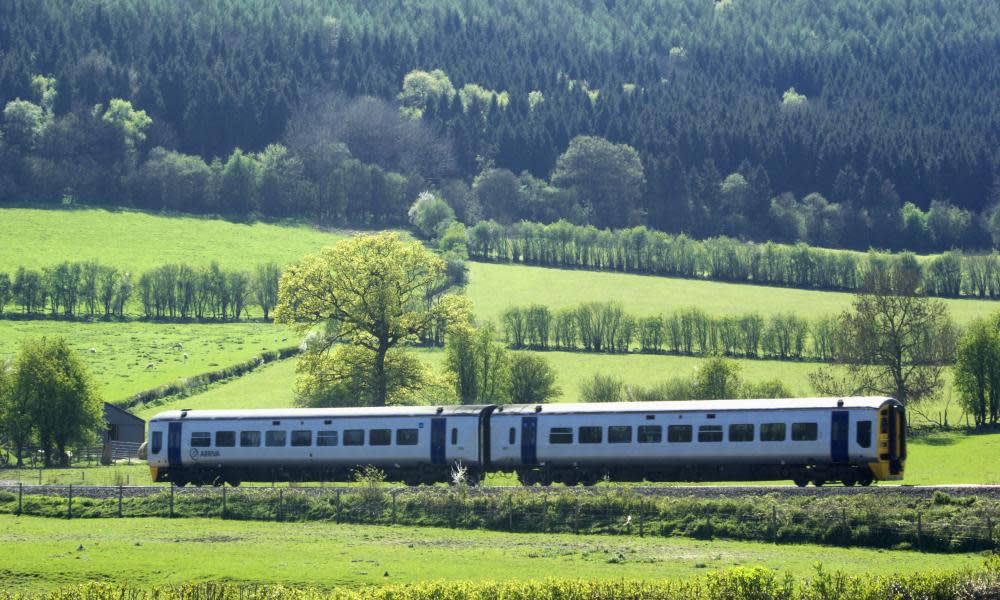Plans for rail pass for UK staycationers axed over cost concerns

Plans to boost domestic tourism by introducing a rail pass for British staycationers have been axed, the Guardian can reveal.
The idea was initially heralded by the government as a way to help struggling businesses get back on their feet as the final Covid restrictions were being lifted in the summer of 2021, but extensive consultations since have found that the plan would not be commercially viable.
Hospitality and tourism groups said they were disappointed by the move, while Labour said the “shambolic” state of the railways was harming interconnectivity.
The special ticket was intended to be modelled on the BritRail pass, which is sold through VisitBritain and allows foreign tourists unlimited journeys on most train lines across England, Wales and Scotland.
It is sold as a way of encouraging visitors to travel to attractions across the country, letting them “discover the hidden gems of Britain any time, on any train” and at “great value for money”.
As the final unlocking of restrictions approached, the Department for Digital, Culture, Media and Sport (DCMS) said in a widely reported announcement in June 2021 that a similar rail pass for staycationers would be launched “later this year”. However, more than 18 months later, the plan has not come to fruition.
In an update to the tourism recovery plan quietly released this month, the department said that the “domestic rail tourism product” had been axed.
Extensive research by DCMS, alongside the Department for Transport, the Rail Delivery Group and VisitBritain, found that such a product “would not provide value for money for customers” if it were commercially viable.
“The government will work with VisitBritain and the rail operators to find alternative ways to encourage more people to use UK rail networks to enjoy the leisure and tourism offer around the country,” the document noted.
The decision will come as a blow to struggling tourism and hospitality firms, which are already struggling given the cost of living crisis and high inflation. DCMS acknowledged this, saying the short-term focus was “still on recovery” – especially for parts of the country particularly damaged by the loss of tourist numbers and spending since 2019.
Richard Toomer, the executive director of the Tourism Alliance and a member of the government’s Tourism Industry Council, said it was disappointing that the idea had been dropped.
He said it would have been “a great way to encourage people to explore the regions and nations of the UK”, and that rail travel was “a very sustainable form of transport too”, helpful for travellers who are “keenly aware of wanting to travel sustainably”.
Toomer said: “We raised this at a meeting of the Tourism Industry Council last week and we will be working with the government to understand the difficulties and seeing if there’s a way through them.”
Kate Nicholls, the chief executive of industry body UKHospitality, also said the decision was disappointing. “Throughout the pandemic we saw staycations rise in popularity, and a dedicated rail pass would have been a great way to incentivise consumers to continue spending time travelling and visiting places across the UK.”
However, she added that it was positive that ministers were committed to exploring alternative ways to encourage people to use the railways for domestic travel.
Labour called the decision “another broken promise from this government on our rail services”. Louise Haigh, the shadow transport secretary, said: “The shambolic state of our rail network is already hurting tourism and connectivity up and down the country. The next Labour government will put passengers back at the heart of our railways, better connecting the country and unlocking jobs and growth.”
A government spokesperson said “extensive research” had been conducted with stakeholder groups, but it was concluded that “in order to be commercially viable, the product would not provide value for money for the public”.
They added that ministers were “working with VisitBritain and the rail operators to find alternative ways to encourage more people to use UK rail networks to enjoy all that the UK has to offer tourists”.

 Yahoo News
Yahoo News 
